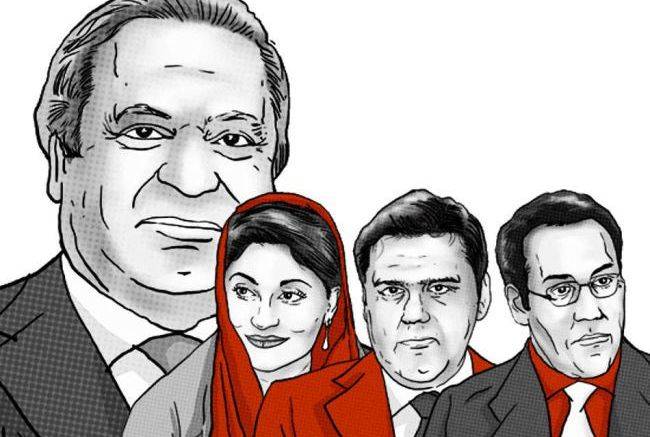After months of speculation and not a little grandstanding from all the parties involved, the Supreme Court finally delivered its verdict on the Panama Papers case earlier this week. Initially, the 540 page judgement was met with bewilderment and confusion, as both the PML-N and the PTI took to the airwaves and social media to declare victory. For the former, the fact that Prime Minister Nawaz Sharif and his extended family had not been proven guilty of committing any offence, and had also not been disqualified from holding public office, was taken as sufficient reason to celebrate. On the other hand, the PTI referred to the dissenting notes penned by two of the five judges involved in the case as a damning indictment of the Prime Minister that demonstrated how he was unfit to continue holding public office. As noted by Justice Azmat Saeed Sheikh, the resulting debate in the media, characterized by the pronouncements of an army of politicians and partisan ‘experts’, has been largely incorrect and misinformed.
As is usually the case in these matters, the truth seems to be somewhere in the middle. While many of the initial reactions to the Supreme Court’s judgement either lauded or condemned the judges depending on the political predilections of those making such observations, more detailed scrutiny of the judgement and its implications has made it clear that while Nawaz Sharif and his family are in the clear for now, their relief may be short-lived. By calling for the creation of a Joint Investigation Team (JIT) to further scrutinize the money trail underpinning the Sharif family’s acquisition of properties around the world, the Supreme Court (including the judges who ruled in favour of the Prime Minister) have essentially suggested that while the evidence presented against Nawaz Sharif might be inadequate at present, there is reason to believe that the Sharif family has not been entirely forthcoming in its attempts to explain the sources of its wealth. In this context, while giving the Prime Minister the benefit of the doubt for now, the judges of the Supreme Court have made it clear that he and his family are not off the hook just yet.
It is not for me to comment on the merits or problems with the Supreme Court’s judgement; lacking any legal training of my own, I can only defer to the wisdom of friends and colleagues in the legal community who assure me that the judgement is fair and balanced. I can, however, welcome the Supreme Court’s decision as yet another important step taken in Pakistan’s tenuous journey towards more substantive democratization. Indeed, from the very beginning, the probe into the Panama Papers has been characterized by something almost unprecedented in Pakistan’s history; a relatively transparent inquiry into misconduct by ruling politicians undertaken by a court of law widely believed to be working independently of external pressures. As opposed to the show trials and witch-hunts of the past, or even the more recent examples of judicial overreach during the previous PPP government’s tenure, most observers would agree that the way Nawaz Sharif and his family are being investigated is a positive development, demonstrating both the growing maturity of Pakistan’s democratic institutions as well as how even the most powerful politicians can be held accountable.
Going forward, there are serious questions that must be addressed regarding the ability of the JIT to conduct its investigation into the Sharif family’s financial affairs. As was made evident by the attempts to scrutinise the Prime Minister’s financial records while evidence was being amassed for the Panama Case, there is every reason to believe that the civilian bureaucrats and agencies tasked with discharging this responsibility may not be able to do so independently or effectively while Nawaz Sharif remains in power. Given that the PML-N is widely expected to win the 2018 elections, barring other unexpected acts of providence, the very logic of Pakistan’s patronage politics suggests that many bureaucrats would be reluctant to invite the ire of a political party that would be in a position to wreak retribution upon them a year from now (if not sooner). This is precisely why the PTI and other opposition parties (some without any apparent sense of irony) have been calling for the Prime Minister’s resignation to facilitate an impartial investigation. It goes without saying that Nawaz Sharif is unlikely to acquiesce to this demand.
While it may turn out to be the case that the JIT proves unable to unearth any evidence that would lead to the Prime Minister’s disqualification from office, the precedent set by the Panama case will remain. A sitting Prime Minister, his family, and some of his closest allies will have been scrutinized by the highest court in the land, and forced to answer some very uncomfortable questions about their conduct in office. Even if Nawaz Sharif is ultimately acquitted of all charges for want of evidence, serious damage will have been done to his reputation and his exercise of public office will forever remain shrouded in a dark cloud of suspicion. Whatever moral authority the Prime Minister might have had has been significantly eroded, and that is unlikely to change regardless of the eventual outcome of the JIT’s efforts. Most importantly of all, this has all been accomplished without the overt interference of the military establishment or the exercise of powers that the courts might not actually possess. There is much reason to be skeptical of both the PML-N and the PTI as parties possessing the wherewithal to chart a course for a progressive and prosperous Pakistan, but the tussle between the two over the past year bodes well for the future of the country’s democratic system.






